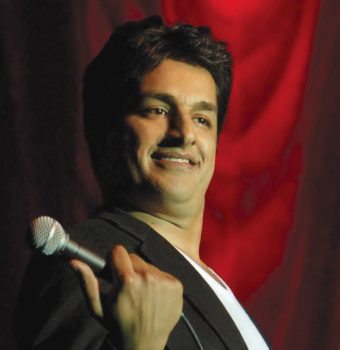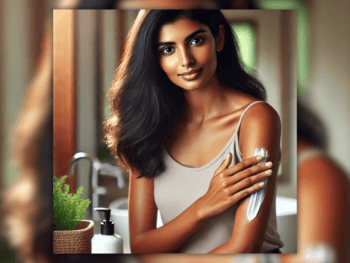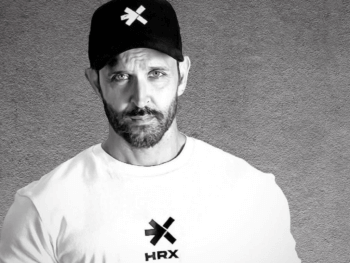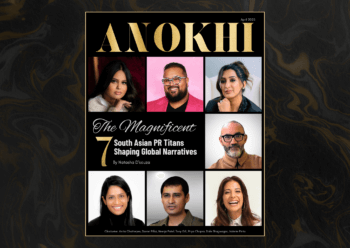
Growing up in North America, many South Asians, have noticed a lack of role models in mainstream media. As comedian Sugar Sammy points out in his act, Apu from The Simpsons seems to be one of the few South Asians on TV – and even his voice is done by a white actor! I thought nothing more of it – South Asians were only portrayed as cab drivers or convenient store owners, but somehow, it wasn’t that funny. Then, one day I came across an Indian comic on the Comedy Network, imitating his parents’ thick Indian accent while making the audience roar with laughter to his “somebody-gonna-getta-hurt” joke. It was none other than Russell Peters. The name needs no introduction – Peters is the godfather of South Asian stand up comedy. Making his debut in 1989 and paving the way ever since, Peters put a twist on the stereotypical notion of a funny Indian in the mainstream.
South Asian comedians have come a long way since Peters’ initial start, and while he still holds the title of being the first, many others South Asian comics now share the stand-up stage. This is no surprise, as South Asians are becoming a visible majority in North America’s growing culturally diverse population. This July, Just for Laughs hosted “The Asian Invasion”, a show dedicated to North America’s top Asian and South Asian comedians, hosted by comedian Sugar Sammy, and featuring, in its South Asian line-up, Vijai Nathan and Vidur Kapur. ANOKHI recently caught up with the comedians to see what the laughter’s all about.
Give Me Some Sugar!
Host of “The Asian Invasion”, Sugar Sammy may look like a sweetie but don’t be fooled – his jokes got bite. During the show, Sammy explains why he would have to change up his style in the bedroom, were he to have an arranged marriage: “Who’s your daddy?” Sammy asks his imaginary bride, to which she answers in confusion, “Jawant Singh Hardeep. Why are you asking me this? You know him – you met him at our wedding. He gave you a cow!” Although often compared to Peters, Sammy insists that being both a generation younger and a Montreal native have contributed to his unique point of view. While for some people, choosing a career takes years of agonizing, Sammy knew around the age of nine. “I remember we were at the Indian movie store with my mom and they had two or three English movies,” recalls Sammy, “One of them was Eddie Murphy’s Delirious…by the end of [watching] it, I knew what I wanted to do with the rest of my life.” As Sammy grew up, his parents, aware of his interest, were his solid support system. Influenced by Eddie Murphy, Martin Lawrence, Chris Rock and Dave Chappelle, Sammy developed his own comedic style. “My stuff doesn’t really touch on the South Asian stuff as much as Russell Peters or a lot of other South Asian comedians, unless I do a specifically South Asian show,” he explains. “I just talk about personal stuff more…all of it comes from just living my life – being in relationships, hanging out with friends, going to the gym, being single…most of the material just writes itself.” Sammy started performing when he was 19, and he constantly embraces the chance to perfect his craft. The biggest challenge? “I got into comedy full-time three years ago, and the biggest challenge was being as good as the headliners out there,” Sammy confides, “I feel like I’ve worked hard enough to compete at a high level now – I can see myself being on any show with anyone and totally destroying the stage.” As Sammy explains, confidence is a necessity in this business. “You always have to be a good salesman and find out how to sell your material to the crowds”. He does so by adapting material to every audience differently. And despite not touching as much on South Asian topics, Sammy admits that the increasing popularity of “ethnic” comics is due, in part, to the very fact that, “Everyone loves to hear someone they can relate to.”

Nicely Packaged, Vidur
Growing up gay in India was no easy plight for Vidur Kapur, as he points out in the opening line of his act: “I’m Indian. I’m Gay. I’m F*!&ed!”. On the way to a recent show, Kapur took some time out to talk to ANOKHI. It was a long path that led Kapur to the stand-up comedy. Growing up in India to an upper-middle class family, and then discovering he was “different” on the onset of puberty, was challenging at times to say the least (he didn’t even know what gay meant at the time.). “I had a guy who used to follow me around school going ‘homohomohomo’…” Kapur says he’s been able to find humour in those painful situations, and explains during his act that “It was just so embarrassing for me growing up [but] I’ve learned from it because I’ve started doing it in Manhattan – I go up to people and go ‘heteroheterohetero’.” He always had a flare for performing but never considered pursuing it. Rather, he followed the academic route which led him to a PhD in economics at the University of Chicago but left him dissatisfied. “I was really seeking to express myself in some way … to express a lot of experiences I have had growing up in India…and use all the fun and humour that I had in me.” Kapur took a stand-up comedy class and decided it was time for a change. Vidur’s unique perspective, not only as a gay Indian, but also as an immigrant, sets him apart from many others on the bill. Arriving at the club, Vidur pauses for just a moment, confiding that there will be some family in the audience tonight: “I’m nervous as hell.” Still, Vidur knows that although not everyone will be his fan, his parents at least are very supportive. In fact, there is a higher reason why Vidur performs – to bring about change and create awareness, for aside from homosexuality, Kapur says Indians do not talk about sex on the whole. “When was the last time you heard someone go ‘Check out the booty on Lakshmi’ or ‘Nicely packaged there, Subramanium’?” When performing to a South Asian audience, he says, “There’s always a little bit of shock, followed by a lot of laughter.” And people can relate. Kapur says women in particular often relate, as they feel marginalized in Indian society or society as a whole, and immigrants can relate because he performs from the angle of being one of them. Kapur recognizes the growing diversity not just amongst the audience, but on stage as well. He admits though, “In terms of the big and famous comics…it’s still very black and white, with a few exceptions.” However he is optimistic, and happy to pioneer the growing diversity with shows like “The Asian Invasion”. “It seems like [Just for Laughs] sees a market there, they see a demand and they’re like ‘ok let’s cultivate that talent because that’s a voice that needs to be heard’. And there isn’t just one type of voice.”

Good Girls Don’t but Indian Girls Do
Growing up, most kids think they want to be a teacher, a police officer, a dancer…but not Vijai Nathan. “When I was little I wanted to be a mom…I loved my mom and I thought that the best job in the world that I could be was a mom.” However, her parents had other notions of what she should do – doctor, lawyer, and engineer all seemed suitable – which left Nathan feeling stifled. Always having enjoyed creative writing and acting, Nathan kept her creative side to herself because as far as family was concerned, they were just trivial pursuits. Nathan went to McGill to study English Literature (“which my parents said was ok because they thought it was pre-law”), went into Journalism and took a comedy class on the side. “I thought it was so great to watch a comedian talk about horrible things and make them funny and make you relate to them,” Nathan explains. Shortly thereafter, she decided to follow her own dreams. “I told the Baltimore Sun – which was the newspaper I was working for at the time – that I was quitting to become a comedian and they thought I was insane,” Nathan reminisces. “When I think about it now, I was crazy!..But it just felt like the sanest decision; it felt like I finally came home.” Having faced much racism as a child, Nathan says that comedy gives her a platform to “show Indians as people, and not just as a stereotype. [An] Indian mom and dad are just as neurotic as an Italian or Irish or Mormon mom and dad.” Nathan gives an example: “When I was little, I would sing Madonna’s ‘Like a Virgin’ 24 hours a day. Finally one day my mom pulled me by the throat and said, ‘Vijay, you are not like a virgin – you are a virgin!’” Jokes aside, her parents have seen the audience’s rave response to her and stand behind her – Nathan notes that a weird experience is hearing her dad quote her show back to her. Aside from her stand-up, Nathan also does a one-woman show, “Good Girls Don’t but Indian Girls Do”. Here, the story is more about her life, and while still funny, she exposes a more serious side as well. Although she has gradually gained a larger following, especially as one of the few South Asian female stand-up comics, Nathan admits there have been bumps along the way. Still, she has learned, “there’s really no room for bitching and moaning in this business. If you’re going to bitch and moan then…stop or take a break and then go back to it because it doesn’t get any easier, ever.” And while the amount of South Asian comedians is increasing, Vijay feels not many will take the time to help other comedians out. She does, however, praise Russell Peters as one of the few who went out of his way to help her by getting her name out. Gig by gig, Nathan is making audiences laugh, while also spinning the stereotypes of narrow-minded people. “I was in the park and I saw this really bad mime,” Nathan tells during her act, “He was so bad that I started laughing and he stopped miming, pointed at me and said ‘if you can’t appreciate fine art, then go back to your own country.’” Nathan pauses, as the audience is shocked into awe, and then continues, “I was like ‘how dare you speak!’.” And laughter replaces the silence.
“The Asian Invasion” represents a “‘New Wave’ of cutting edge comedy and entertainment – one that represents rapidly changing demographics and cultural expression in North America.” reads a statement from Just for Laughs. As the numbers continue to grow for stand-up comedians, some words from the wise are to persevere – because making people laugh is not as easy as it may seem. Nathan suggests new stand-up comedians do as many open mics as possible to break material in. And last but not least, Sugar Sammy advises, “Be yourself. Don’t just be the South Asian comedian. Be a complete person.”
WORDS JAYANI PERERA
PHOTOS JUST FOR LAUGHS














































































































